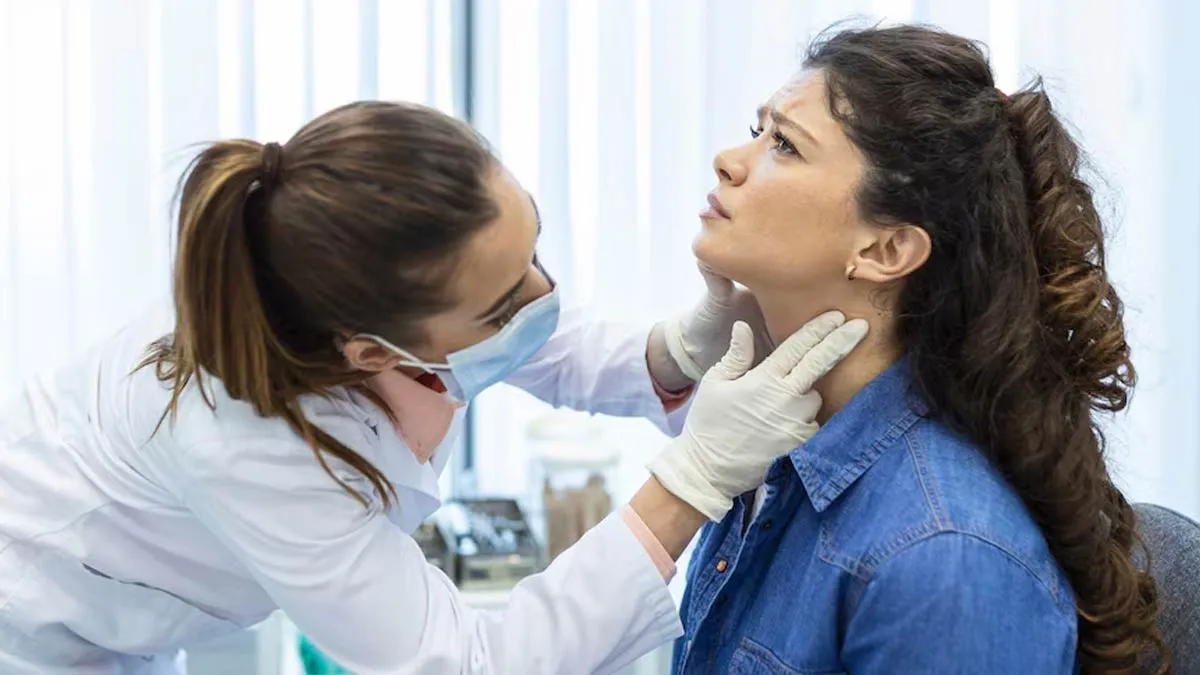
Have you ever noticed a slight swelling in your neck and brushed it off as nothing? Many people do until they experience unexplained fatigue, sudden weight changes, or difficulty swallowing. The thyroid is a small butterfly-shaped gland in your neck, which helps regulate metabolism, energy levels, and mood. However, thyroid disorders and nodules often go unnoticed until they start affecting daily life. While most thyroid nodules are harmless, some can grow large enough to cause discomfort or, in rare cases, signal something more serious. We spoke to Dr Naveen Chandrashekhar, Consultant Intervention Radiologist, Gleneagles BGS Hospital Kengeri, Bengaluru, who explained these nodules and their impact can help in early detection and better management, preventing unnecessary complications.
Table of Content:-
Role Of Thyroid Gland
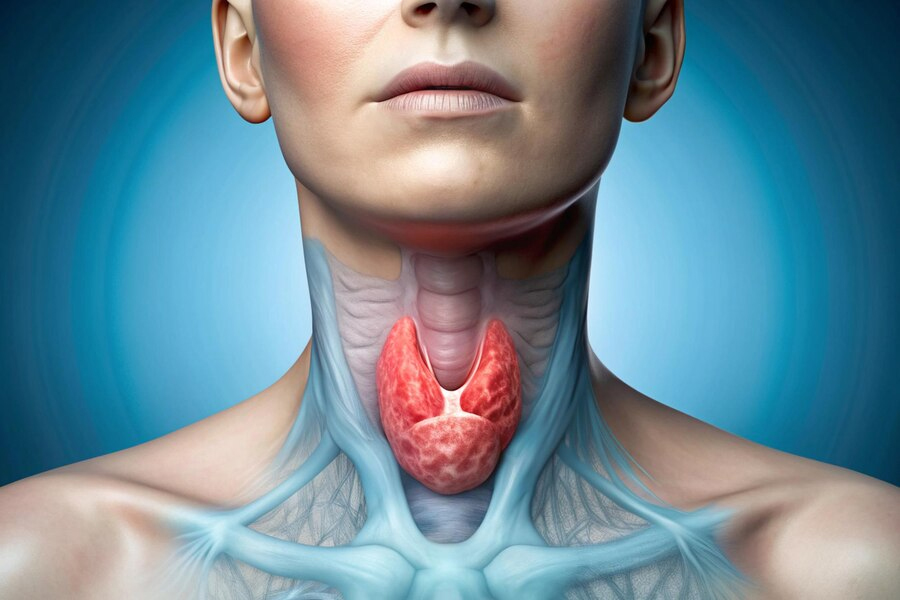
"The name thyroid gland comes from the Greek word ‘thyros,' which means shield. It is a small butterfly-shaped gland in front of the neck weighing a few grams and 3-4 cm in dimension," said Dr Chandrashekhar.
This endocrine gland secretes T3 and T4 hormones, TSH, a pituitary gland hormone, and calcitonin, which helps regulate calcium levels. The functions of the thyroid gland include controlling the metabolic activity in our body, maintaining body temperature, and developing physical and mental growth.
Causes of Thyroid Disorders
Thyroid disorders have become a common health condition due to various reasons, including:

- Changes in dietary habits
- Physical and mental stress
- Adoption of Western lifestyle habits
- Lack of physical activity
"All these, in isolation or combination, can trigger hormonal imbalances in one’s brain centre, which controls thyroid hormonal regulation. Once these triggers and control centres are dysregulated, thyroid problems are clinically encountered," added Chandrashekhar.
Also Read: Endocrine Disorders: Expert Explains Their Symptoms, Causes, And Treatment
Types Of Thyroid Disorders
Thyroid disorders can be classified into the following types:
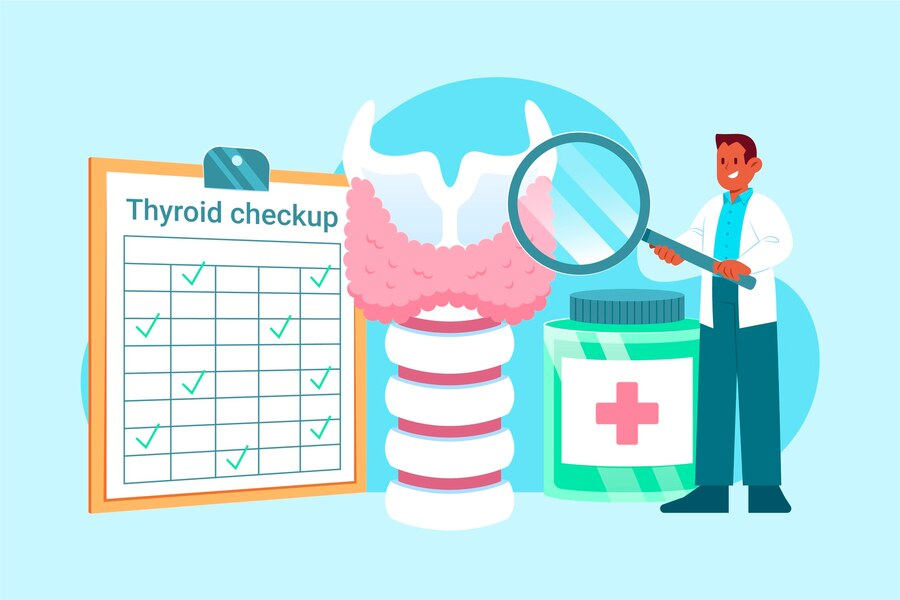
- Euthyroidism: Normal hormone levels with no clinical symptoms
- Hypothyroidism: High TSH levels
- Hyperthyroidism: Low TSH levels
Symptoms of Thyroid Disorders
Hypothyroidism Symptoms
According to the National Institute of Diabetes and Digestive and Kidney Diseases (NIDDK), hypothyroidism or underactive thyroid occurs when the thyroid gland doesn't produce the required levels of thyroid hormones. Dr Chandrashekhar listed its symptoms as follows:
- Excessive weight gain
- Fatigue
- Feeling cold
- Skin dryness
- Irregular menstrual cycles in females
Hyperthyroid Symptoms
According to NIDDK, hyperthyroidism or overactive thyroid occurs when the thyroid gland overproduces thyroid hormones. Here are the symptoms you should watch out for:
- Weight loss
- Palpitation
- Excessive sweating
- Heavy menstrual bleeding
- Irritability
What are Thyroid Nodules?

"Thyroid nodules are the most common non-cancerous swelling seen in the neck region, usually picked up by asymmetry in the neck, either by a friend or family member. Some patients may have symptoms of problems with drinking, swallowing, and breathing difficulties while sleeping when the size of the nodule is big," explained Dr Chandrashekhar.
Thyroid nodules can sometimes form secondary to abnormal levels of thyroid hormones in the body or nodules themselves may cause these hormonal imbalances when we call them autonomous or hyperfunctioning nodules.
Diagnosis of Thyroid Nodules
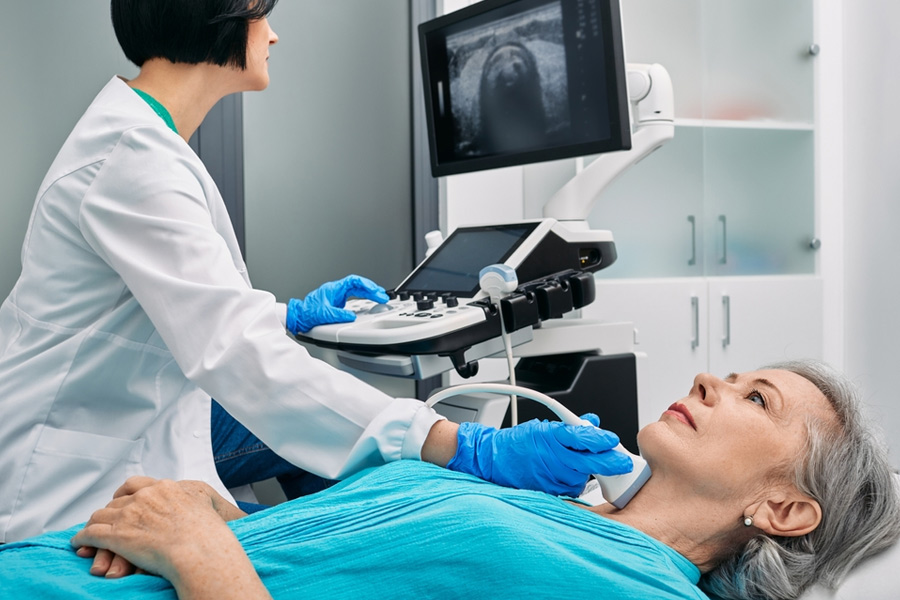
These nodules are easily detected by clinical examination followed by ultrasound, a safe, reliable, and non-invasive method of evaluating thyroid swelling. It helps assess size, character, shape, hardness or softness, presence of abnormal calcification and features pointing towards the transformation of cancer in previous thyroid nodules. Ultrasound evaluation, along with a scoring system called TIRADS can help analyse these features.
After this, your intervention radiologist performs a simple and quick Fine Needle Aspiration Cytology (FNAC) test. "Under ultrasound guidance, they collect cells from the thyroid nodule to precisely sample the abnormality. This is an Outpatient Department (OPD) procedure. A pathologist then examines the FNAC slides and concludes whether the cytology is benign or cancerous," added Dr Chandrashekhar.
Also Read: Dealing With Thyroid Issues? Expert Explains Role Of Dietary Factors In Thyroid Disorders
Risks of Untreated Thyroid Nodules
If left untreated, thyroid nodules can give rise to the following risk factors:
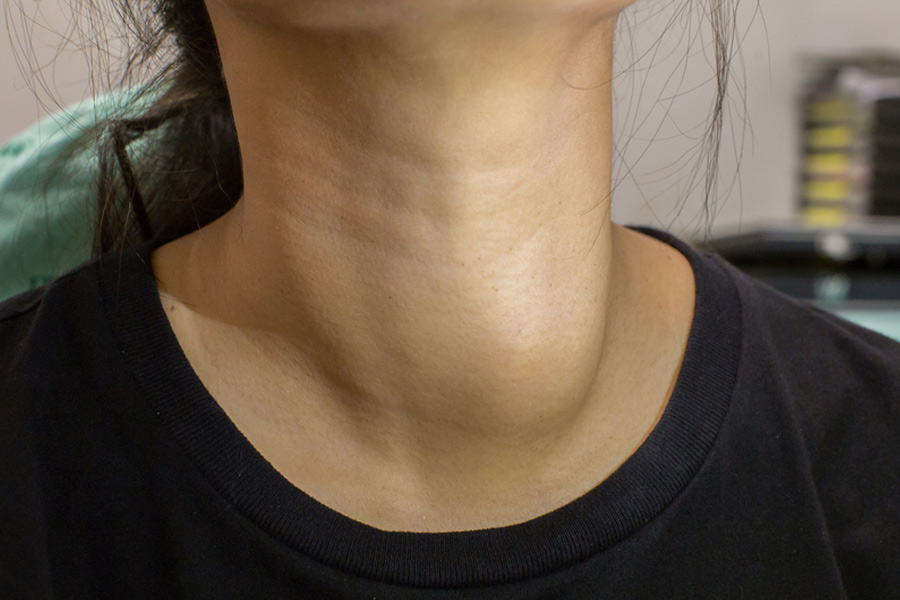
- Increase in size
- Affects respiration and swallowing
- Major thyroid hormone imbalances
- Transform into cancer if they are initially borderline dysplastic
Traditional Treatment: Surgery
Previously, benign thyroid nodules were treated with surgery, where either part of the thyroid gland or the entire gland with the abnormal thyroid nodule was removed. The procedure involves the risk of general anaesthesia, the need for hospitalisation, a relatively longer recovery period, and a cosmetic scar on the neck.
The downside of surgery for benign thyroid conditions is the inadvertent injury to the recurrent laryngeal nerve, which is responsible for phonation (speech). “With this nerve injury, the patient may land up in voice change post-surgery, called hoarseness of voice. Additionally, it may also lead to post-operative hypothyroidism, where the patient may have to depend on life-long thyroid hormone replacement for normal functions to happen in the body,” explained Dr Chandrashekhar.
Advanced Minimally Invasive Treatments
Advanced intervention radiology techniques present a paradigm shift in managing benign thyroid nodules and goitre. These techniques include microwave or radiofrequency ablation of thyroid nodules and embolisation of thyroid arteries.
These procedures selectively target the abnormal gland, preserving the rest of the thyroid gland and its normal functions. Also, these are daycare procedures that do not require hospitalisation. They offer quick recovery, minimal risk of nerve damage, and are scarless, painless, and minimally invasive. Moreover, their results are comparable to those of traditional open surgery.
[Disclaimer: This article contains information provided by an expert and is for informational purposes only. Hence, we advise you to consult your professional if you are dealing with any health issue to avoid complications.]
Also watch this video
Read Next
Worried About Flying With High Blood Pressure? Expert Lists Its Impact, Risks, And Management Tips
How we keep this article up to date:
We work with experts and keep a close eye on the latest in health and wellness. Whenever there is a new research or helpful information, we update our articles with accurate and useful advice.
Current Version